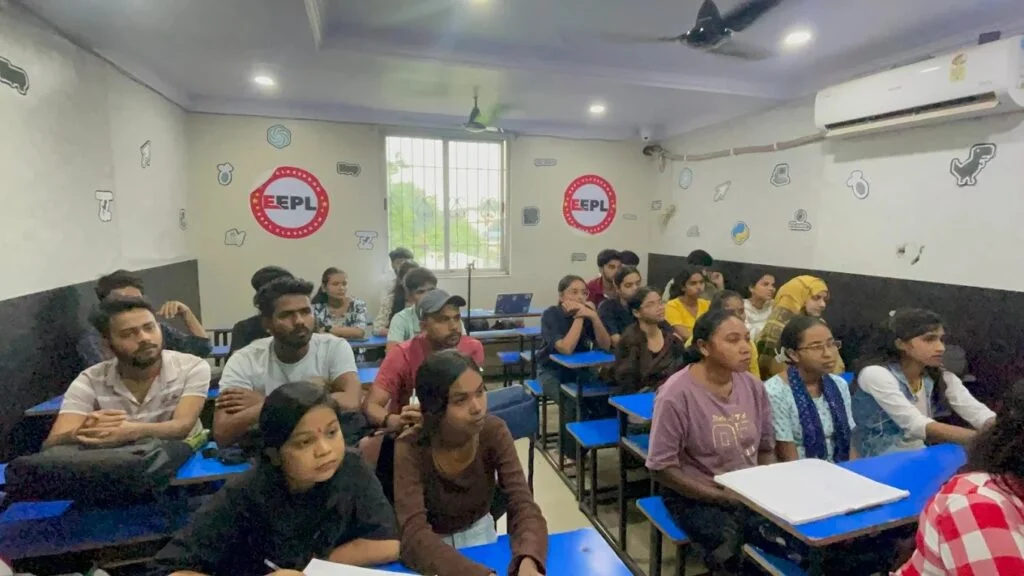1. Understand the Syllabus and Weightage
Familiarize yourself with the syllabus and focus on topics with high weightage:
- Physics: Prioritize Electrostatics, Current Electricity, Optics, and Modern Physics.
- Chemistry: Focus on Organic Chemistry, Coordination Compounds, and Electrochemistry.
- Mathematics: Emphasize Calculus, Probability, Algebra, and 3D Geometry.
- Biology: Master Genetics, Biotechnology, Ecology, and Human Physiology
2. Plan Your Study Schedule
Sample Daily Routine:
| Time | Activity | Duration |
|---|---|---|
| 6:00–6:30 AM | Revise previously studied topics | 30 minutes |
| 6:30–8:00 AM | Practice Physics or Math problems | 90 minutes |
| 8:30–10:30 AM | Study Biology or Chemistry theory | 2 hours |
| 4:00–6:00 PM | Work on weak topics and clear doubts | 2 hours |
| 7:00–9:00 PM | Solve sample papers or mock tests | 2 hours |
3. Subject-Wise Study Tips
Physics:
- Understand derivations and their applications.
- Solve numericals daily and focus on conceptual clarity.
Chemistry:
- Learn Organic Chemistry reaction mechanisms thoroughly.
- Stick to NCERT for Inorganic Chemistry and practice trends.
- For Physical Chemistry, practice numerical problems regularly.
Mathematics:
- Master Calculus as it has significant weightage.
- Practice problems from various sources to improve speed and accuracy.
Biology:
- Memorize NCERT content and practice labeled diagrams.
- Use flowcharts for quick recall of processes.
4. Manage Your Time Effectively
- Prioritize subjects or topics where you need improvement.
- Set achievable daily and weekly goals.
- Simulate exam conditions by solving previous years’ papers in a timed manner
5. Use the Right Study Materials
Books:
- Physics: Concepts of Physics by H.C. Verma, NCERT
- Chemistry: Modern’s ABC of Chemistry, NCERT
- Mathematics: R.D. Sharma, NCERT
- Biology: Trueman’s Biology, NCERT
Online Resources:
- Watch tutorials for challenging concepts on platforms like YouTube.
Mastering Class 12 PCMB: Your Ultimate Guide to Scoring Top Marks
1. Understand the Syllabus and Weightage
Familiarize yourself with the syllabus and focus on topics with high weightage:
- Physics: Prioritize Electrostatics, Current Electricity, Optics, and Modern Physics.
- Chemistry: Focus on Organic Chemistry, Coordination Compounds, and Electrochemistry.
- Mathematics: Emphasize Calculus, Probability, Algebra, and 3D Geometry.
- Biology: Master Genetics, Biotechnology, Ecology, and Human Physiology.
2. Plan Your Study Schedule
Sample Daily Routine:
| Time | Activity | Duration |
|---|---|---|
| 6:00–6:30 AM | Revise previously studied topics | 30 minutes |
| 6:30–8:00 AM | Practice Physics or Math problems | 90 minutes |
| 8:30–10:30 AM | Study Biology or Chemistry theory | 2 hours |
| 4:00–6:00 PM | Work on weak topics and clear doubts | 2 hours |
| 7:00–9:00 PM | Solve sample papers or mock tests | 2 hours |
3. Subject-Wise Study Tips
Physics:
- Understand derivations and their applications.
- Solve numericals daily and focus on conceptual clarity.
Chemistry:
- Learn Organic Chemistry reaction mechanisms thoroughly.
- Stick to NCERT for Inorganic Chemistry and practice trends.
- For Physical Chemistry, practice numerical problems regularly.
Mathematics:
- Master Calculus as it has significant weightage.
- Practice problems from various sources to improve speed and accuracy.
Biology:
- Memorize NCERT content and practice labeled diagrams.
- Use flowcharts for quick recall of processes.
4. Manage Your Time Effectively
- Prioritize subjects or topics where you need improvement.
- Set achievable daily and weekly goals.
- Simulate exam conditions by solving previous years’ papers in a timed manner.
5. Use the Right Study Materials
Books:
- Physics: Concepts of Physics by H.C. Verma, NCERT
- Chemistry: Modern’s ABC of Chemistry, NCERT
- Mathematics: R.D. Sharma, NCERT
- Biology: Trueman’s Biology, NCERT
Online Resources:
- Watch tutorials for challenging concepts on platforms like YouTube
6. Focus on Revision and Practice
- Regularly revise topics you’ve already studied.
- Make concise notes for last-minute revision.
- Practice diagrams for Biology and numericals for Physics and Chemistry.
7. Stay Healthy and Positive
- Get 6–8 hours of sleep every night.
- Include nutritious meals and some physical activity in your daily routine.
- Take short breaks to avoid burnout and stay motivated.
EEPL CLASSROOM
Surbhi kumari
7488713635
eepl.me
teamemancipation@gmail.com










